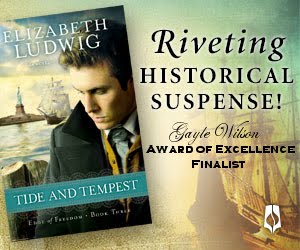 DON BROWN graduated from the University of North Carolina in 1982, and after finishing law school, continued his post-graduate studies through the Naval War College, earning the Navy’s nonresident certificate in International Law.
DON BROWN graduated from the University of North Carolina in 1982, and after finishing law school, continued his post-graduate studies through the Naval War College, earning the Navy’s nonresident certificate in International Law.During his five years on active duty in the Navy, Don served in the Pentagon, was published in the Naval Law Review, and was also a recipient of the Navy Achievement Medal, the Navy Commendation Medal, and the National Defense Service Medal.
Tell me a little bit about your background and your family.
I grew up in a small town in Northeastern North Carolina, Plymouth, population about 4000. I did a lot of fishing, cut grass, worked in tobacco, played trumpet in the high school band, and was lucky to be close to four wonderful, wise, God-fearing grandparents. Plymouth is somewhat poor, with over one-third of the population on government assistance, and does not have the money for its schools that some other areas do. In fact, the school system is in the bottom ten systems in the State of North Carolina in terms of money for schools. Still, I would not trade my formative years with anyone from any other place. I learned so much growing up there that could not be replicated in areas of higher socioeconomic blessing. I later attended the University of North Carolina, went to law school, took a commission in the Navy, and served as a JAG officer. After five years active duty,I settled in the Charlotte area. I’m a single dad with two girls in college, and a 14-year son who lives me.
What do you like to do in your spare time? Hobbies?
To be honest, there’s not a lot of spare time. But in the spare time I have, I love spending time with my son more than anything. I like taking him to the Y, fishing with him, shooting with him, working on his jump-shot, watching the Carolina football and basketball games with him, and coaching his basketball team. I also love traveling with him as much as possible. Right now most of my spare time focus is trying to be a good father to him. I just love spending time with him.
If you could have any superpower, what would it be and why?
Well at first I thought you were asking me if I could have a superpower – i.e. a geopolitical superpower – and I was going to say that I would take the United States of America, and I was going to say that I would take the United States to try and do everything to help restore this nation to her conservative, Biblical roots. But then I realized that probably the question meant something else, like Superman’s ability to fly, or something like that, as a superpower. Well that being the case, if I could have a superpower, then think Star Trek. For me it would be the ability to instantly step into a transporter room and instantly transport myself to any place in the world at any time. Why? Well because I have friends all over the country – great and wonderful friends on the West Coast – great friends and a daughter in Texas – great friends in Europe, and two sisters and my parents who are five hours away.
What has God been teaching you lately?
Probably the thing that I want to learn least – hah — namely patience and perseverance in the face of trials. A couple of years ago, I memorized James 1, “consider it pure joy, my brethren, when you face trials of many kinds, for we know that the testing of our faith produces perseverance, and perseverance must complete its work that you may be mature and complete..” Finding joy when faced by trials is awfully hard in the flesh, but it’s His way, and I think He seems to have been taking me to the woodshed on that one! :-)
When you were a child, what did you want to be when you grew up?
At first I wanted to be an astronaut! Then, when I was 13, I started watching the Senate Watergate Committee hearings on TV, which was chaired by former Senator Sam Ervin of North Carolina, who was an affable ole Harvard-educated Country lawyer. At that point, I was inspired by “Senator Sam’s” knowledge of and love for the Constitution, and decided I wanted to be a lawyer.
Where are you headed next?
Writing-wise, I have signed a contract with Zondervan for a new three-novel series called the Pacific Rim Series. The first novel, entitled THUNDER IN THE MORNING CALM, is due out next year, and I’m extremely excited about that.
How did you get involved in writing?
Well although I had done a ton of legal writing, I had no ambition whatsoever to write a novel until January of 2003. I was attending an “Epiphany Party” at a friend’s house, which in and of itself was quite unique, being that most holiday parties are from Thanksgiving to New Years. That night, my alma mater, UNC was playing basketball against Wake Forest. To be honest, I really was more interested in the game than the party. So I snuck downstairs into the hostess’s basement, found a television all to myself, and watched the game, coming up to hobnob only during commercials and halftime.
Afterwards, I felt guilty that I had not been the most gracious guest, by virtue of the fact that I had sequestered myself in the basement watching the game rather than mixing amongst the partygoers. So I wrote the hostess a note.
The only thing I remember about the note now was the introduction. “Dear Dana. Thank you for the invitation to your party. It was the best of times. It was the worst of times.” The rest I don’t have a clue what I wrote. Well the hostess wrote me back and said, “that was the most eloquent note I ever received. You should write a book.”
So I thought, “What the heck?”” And so then and there, the first lightning bolt struck. Next day, I got out my laptop and started writing. Two-and-a-half years later, by the Grace of God, my first novel, Treason, was released nationwide.
What was the most difficult aspect of the writing process?
To me, to be honest, the writing comes easy. And for that I’m very blessed. The most difficult part, by far, is balancing my writing against my other full-time job, which is practicing law. Last week, for example, I was in court four times, all the while finishing a manuscript for my next novel. For two straight weeks, I was putting in 16-17 hours a day of work, and that can get exhausting.
What did you enjoy most about the writing process?
I love it all, but the part I enjoy the most is the learning that I get to do, through the research. I like to write about different parts of the world. My most recent release MALACCA CONSPIRACY takes place in Singapore, Malaysia, Indonesia and the USA. By the time I was done researching and writing, I’d learned a lot about that area of the world that I would have never known about otherwise.
How do you find time to write?
Hah! Lots of coffee and shots of espresso! I’ll write early in the morning, sometimes between 5-7, then go to work with my law job, then sometimes go from 8-11 or 8-12 at night. It takes a lot of discipline. And if you want to write, you have to pretty much cut out TV, which I do cut out for the most part unless the Tar Heels are playing either football or basketball.
Tells us about your latest release. Where did you get the idea for The Malacca Conspiracy?
 Because I write geopolitical thrillers, one of things I am seeking to do is to write about a hotspot that could boil over any time. That actually happened in my Novel TREASON, which some have said “predicted” subsequent events at Fort Hood in November of 2009, and BLACK SEA AFFAIR, which some have said “predicted” the 2008 Georgian-Russian War.
Because I write geopolitical thrillers, one of things I am seeking to do is to write about a hotspot that could boil over any time. That actually happened in my Novel TREASON, which some have said “predicted” subsequent events at Fort Hood in November of 2009, and BLACK SEA AFFAIR, which some have said “predicted” the 2008 Georgian-Russian War.In this case, based upon extensive research, I believe that the Malacca Straights region is a region of the world that could blow at any minute, and I write in part to educate people about these hotspots. I want to help Americans, especially, understand through entertaining fiction, about issues and places that could. have a very profound impact on our lives at the flick of a spark.
What are the major themes of the book?
The central major theme, I would say, is based upon the Second Book of the Pentateuch, taken from the sixth chapter and eighteenth Verse, which is, to paraphrase, “do the right thing.” There are other subthemes as well, but for central characters like the Indonesian woman Kristina Wulandari, for Zack Brewer and for President Mack Williams, each is faced with very crucial decision-making of potential dire consequences in the face of real evil. They are called upon to decide to do what is right in the face of great danger and deadly consequences.
What kind of research did you have to do for the book?
I researched military journals, non-classified CIA materials, local maps, local newspapers in Indonesia, Singapore and Malaysia, various local websites, this sort of thing. A lot of times I’ll buy geography books on an area to get a better feel.
With which character do you, personally, identify most and why?
Although I have been accused of being ZACK BREWER, who is the star of this novel and is the star of the NAVY JUSTICE SERIES, in that we both are from North Carolina and were both US Navy JAG Officers, I suppose the character I identify most with is PRESIDENT MACK WILLIAMS. Why? Love of country, love of the military, his conservative values, and his determination to do what is right in spite of liberal heckling and criticism. America desperately needs men like Mack Williams in Washington today. It’s been a long time since we’ve had conservative, America-first, integrity-based leadership in the White House and in the Halls of Congress.
What do you hope readers will take away from your book?
I want my readers to be entertained, certainly. As a novelist, I have an implicit duty to provide entertainment to each and every reader who picks up one of my books. Beyond that, I hope that my readers will learn about a part of the world and an important geopolitical situation that they probably would not have otherwise known about, and that through the strength of the characters in the book, that they will be inspired to “do the right thing” and to stand bravely in the face of evil.
What would you say to someone who wants to become a published author?
Three things. First, Davis Bunn, a fellow Tar Heel and a brilliant novelist who I greatly admire, once made a speech that I heard, and these words of wisdom have stuck with me. “If you are going to be a writer,” he said, or words to this effect, “you must write every day. You must write for the love of writing, even if what you write is never published.” To paraphrase Davis, without the eloquence that he is capable of and I am not, “write every day because you love it, and let the love of writing drive you to write.” So write every day. Study other writers, and just do it.
The second thing, and I’ve given this advice a thousand times, but find some good writers conferences and attend. At a good writer’s conference, you will find people who can teach you and help you. Look for writer’s conferences that have agents and acquisitions editors, for these are indeed the people who can help a burgeoning writer get his or her foot in the door.
Third, remember the words of Churchill. “Never, never surrender.” Those words were paraphrased by the late, legendary NC State basketball coach, Jimmy Valvano, who said, “Never give up. Don’t ever, ever give up.” For anyone feeling called to do this, to write, persevere. Perseverance pays off.


















0 comments :
Post a Comment